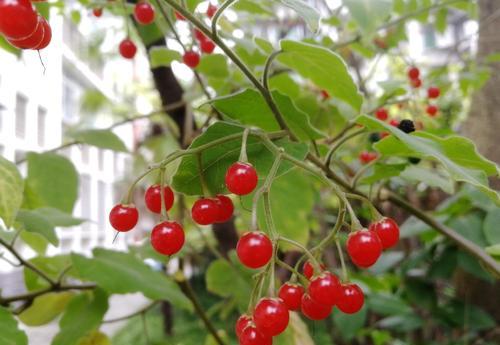First, the botanical characteristics of Bai Ying
1. Name and classification status
Bai Ying is the official middle name, this name is derived from the Botanical Name And Fact Tu Kao, in the Flora of China determined as the official middle name; the alias is also recorded as mountain beet in the Botanical Name And Real Tu Kao; in Shaanxi called cranberry; in Sichuan called Beifeng vine; in Guangdong called raw hair vine; aliases also have hair sow vine, exhaust vine, Shu sheep spring, white hair vine, etc.; in plant taxonomy belongs to the solanaceous solanaceous group of herbaceous vines.

2, distribution and growth environment
Baiying is mainly distributed in Shanxi, Shaanxi, Gansu, Henan, Shandong, Jiangsu, Zhejiang, Anhui, Fujian, Jiangxi, Fujian, Taiwan, Guangdong, Guangxi, Hunan, Hubei, Sichuan, Yunnan and other provinces and regions in China; it usually grows in valley meadows, roadsides, dungeons and fields.
3, appearance characteristics
It is a grassy vine, 0.5-1 m long, stem and twigs densely grown with long soft hairs with knots; single-leaf alternate, the leaves are mostly piano-shaped, the base is usually 3-5 deeply lobed, the lobe is fully margined, the lateral lobe is smaller than the base, the middle lobe is relatively large, ovate, and the leaves have white shiny long soft hairs on both sides; the leaves on a few branches are heart-shaped and small;
Polyumbelis inflorescence apical or extraaxial, sparse flowers, calyx ring-shaped, 5 tooth fissures; corolla blue-purple or white, eaves 5 deeply lobed, summer and autumn flowering;
The berries are spherical, red or reddish-black when ripe, about 8 mm in diameter, the seeds are disc-shaped, flattened, about 1 mm in diameter, and the fruits ripen in late autumn.
Second, the main use of white english
Whole herb of Bai Ying is used as a traditional Chinese medicine
It has a history of more than 2,000 years, according to the "Compendium of Materia Medica": "The smell is sweet, cold, and non-toxic." Indications for the treatment of cold and heat eight scabies, quench thirst, replenish the qi" Chinese medicine believes that Baiying has the effect of clearing heat, detoxification, dispelling wind and dampness, etc.; modern medical studies have shown that Baiying mainly contains saponins, organic acids, terpenes, polyphenols, flavonoids, sterols, coumarins, polysaccharides and other active ingredients. Please follow your doctor's advice when using medicines.
The above is for personal reference only.
(Image quoted from the Internet)